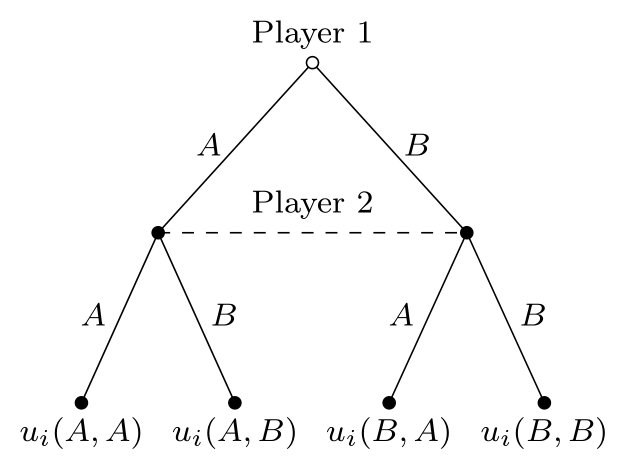I am confused on the concept of static game with complete but imperfect information and its consequences on the equilibrium definition.
Suppose we have 2 players. Each player $i$ chooses action $Y_i\in \{A,B\}$. Actions are chosen simultaneously by the two players. Simultaneity=static in my mind. Is it the case actually?
Each player $i$ gets a payoff $\Pi^i(Y_1, Y_2)$ at the end of the game.
We assume complete information, i.e., players know the values $$ \begin{cases} \Pi^1(A,B),\Pi^1(A,A),\Pi^1(B,B),\Pi^1(B,A)\\ \Pi^2(A,B),\Pi^2(A,A),\Pi^2(B,B),\Pi^2(B,A)\\ \end{cases} $$
An equilibrium concept that we can use in this context is Pure Strategy Nash Equilibrium: $(Y_1, Y_2)$ is a PSNE if $$ \begin{cases} \Pi^1(Y_1, Y_2)\geq \Pi^1(\tilde{Y}_1, Y_2)\\ \Pi^2(Y_1, Y_2)\geq \Pi^1(Y_1, \tilde{Y}_2)\\ \end{cases} $$
Question: What does it mean assuming the players have imperfect information in this case? Would that be in contrast with any of my claims above? Would that change the equilibrium notion? Is Pure Strategy Nash Equilibrium still applicable? This question is related but it does not clarify exactly my point.
